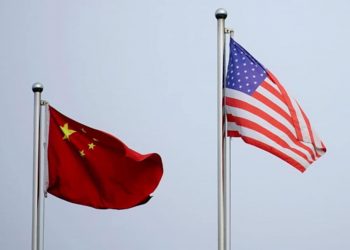Agence France-Presse,
Iran announced on Sunday that it will attend a key conference on Iraq's security in Egypt alongside arch-enemy the United States this week, ending weeks of uncertainty over its involvement.
Iran's participation raises the possibility of a rare encounter on its sidelines between its Foreign Minister Manouchehr Mottaki and US Secretary of State Condoleezza Rice.
Rice said she would “not rule out” such a meeting but Iranian officials have so far declined to be drawn on the possibility.
Officials in Tehran and Baghdad said Iraqi Prime Minister Nuri al-Maliki spoke to Iranian President Mahmoud Ahmadinejad on the telephone to ask Tehran to take part in the conference and Ahmadinejad agreed.
“The Islamic Republic of Iran confirmed that it would attend the two conferences in Sharm el-Sheikh to assist Iraq at the level of foreign ministers,” Maliki's office said in a statement.
“Ahmadinejad, taking into account Iran's support of the popularly elected government of Iraq, said that Iran will take part at the level of foreign minister,” an official from Ahmadinejad's office told AFP.
The decision for Mottaki to represent Iran at the conference in the Egyptian Red Sea resort came after a flurry of diplomatic activity aimed at persuading Tehran to take part.
A meeting between him and Rice would be the first such bilateral contact since then foreign minister Kamal Kharazi and US secretary of state Colin Powell found themselves placed next to each other by their Egyptian hosts at dinner at a similar Iraq conference in November 2004.
Rice said: “I will not rule out that we may encounter each other.
“This is not a meeting about the United States and Iran, this is a meeting about Iraq and about what Iraq's neighbours and interested parties can do to help stabilize the situation in Iraq,” she told ABC news.
Tehran had shown a reluctance to sign up for the May 3-4 conference in Sharm el-Sheikh, citing unhappiness with the decision to include world powers such as the United States alongside Iraq's neighbours.
Iraqi officials have been seeking to persuade Tehran to take part, and Iraqi Foreign Minister Hoshyar Zebari held talks last week in Tehran with Mottaki.
Tehran's attendance also appeared to be complicated by the continued detention by Washington in Iraq of five Iranian officials it arrested in January on accusations of seeking to stir trouble there.
Iran's top national security official Ali Larijani arrived in Baghdad on Sunday afternoon for a three-day visit to discuss the conference and other issues on a previously unannounced mission, state television said,
“The visit of Mr Larijani is in the framework of bilateral relations. He will probably talk about security questions and the international conference,” foreign ministry spokesman Mohammad Ali Hosseini told reporters.
A visit by Iraq's Deputy Prime Minister Barham Saleh to Tehran later on Sunday was cancelled after Larijani decided to go to Iraq himself, state media reported.
Zebari's visit failed to win a clear pledge from Iran to attend the conference, but there had been mounting calls from influential voices inside Iran for Tehran to participate.
Any meeting between Rice and Mottaki would mark a rare high-level contact between the two foes who have had no diplomatic relations since Washington cut ties in 1980 over the seizure of the US embassy in Tehran by radical students.
Washington accuses Tehran of fomenting violence in Iraq by arming and training extremist factions, a charge denied by Iran, and the long-time foes are also at loggerheads over the Iranian nuclear programme.
Rice said Sunday that it was “quite obvious” what Tehran would need to do help violence-racked Iraq.
“Stop the flow of arms to foreign fighters. Stop the flow of foreign fighters across the borders. Stop using advanced IED (improvised explosive device) technology to kill American soldiers. Stop stirring up trouble among militias that then go and kill innocent Iraqis.”








